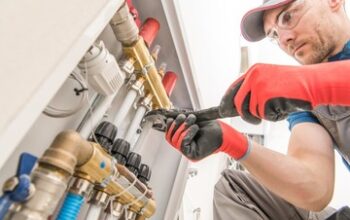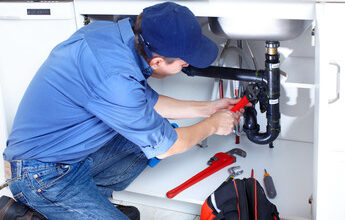Rosenberg Plumbing plays a vital role in maintaining a functional and sanitary environment. Efficient plumbing systems ensure the proper flow of clean water and the safe disposal of wastewater. Advanced techniques and materials have transformed the plumbing industry. Modern plumbing systems are more efficient, durable, and environmentally friendly.
Pipe materials have evolved significantly over the years. Traditional materials have been replaced with more durable and corrosion-resistant options. Lightweight pipes simplify installation and reduce labor costs. Flexible piping improves resistance to temperature changes and pressure.
Water pressure regulation is essential for maintaining system integrity. High pressure can cause pipe damage and leaks. Pressure-reducing valves maintain consistent flow. Proper pressure levels extend the lifespan of plumbing fixtures.
Drainage systems prevent water buildup and flooding. Proper slope and pipe sizing ensure efficient drainage. Vents allow air to flow through the system, preventing blockages. Regular maintenance keeps drains clear and functioning.
Smart plumbing systems integrate technology for better efficiency. Leak detection sensors alert homeowners to potential issues. Smart faucets and toilets reduce water consumption. Automated systems enhance convenience and performance.
Water filtration systems improve the quality of household water. Filters remove contaminants and impurities. Softening systems reduce mineral buildup in pipes. Clean water improves health and extends the lifespan of appliances.
Eco-friendly plumbing reduces environmental impact. Low-flow fixtures conserve water without sacrificing performance. Greywater systems recycle water for non-potable uses. Sustainable practices lower water bills and preserve natural resources.
Plumbing design influences building functionality. Strategic pipe placement minimizes pressure loss and noise. Efficient layouts reduce material costs and installation time. Proper design enhances long-term performance and reliability.
Backflow prevention systems protect potable water from contamination. Check valves stop contaminated water from reversing into clean lines. Regular testing ensures backflow systems function properly. Backflow prevention safeguards public health and safety.
Plumbing inspections identify hidden issues before they escalate. Specialized cameras detect blockages and cracks in pipes. Pressure tests reveal leaks and weak spots. Early detection prevents costly repairs and water damage.
Water heaters provide consistent hot water supply. Tankless models heat water on demand, reducing energy consumption. Insulated tanks improve heat retention and efficiency. Proper maintenance extends the lifespan of water heaters.
Pipe insulation improves energy efficiency and prevents freezing. Insulated pipes retain heat, reducing energy loss. Protection from freezing prevents cracks and bursts. Insulation enhances system longevity and performance.
Sewer line maintenance prevents backups and odors. Hydro jetting clears debris and buildup from sewer lines. Root removal restores proper flow. Routine inspections ensure system integrity and prevent costly repairs.
Fixture upgrades improve water efficiency and aesthetics. Modern faucets and showerheads reduce water usage without compromising pressure. Touchless fixtures enhance hygiene and convenience. Stylish designs elevate the overall look of a space.
Plumbing codes establish safety and performance standards. Compliance ensures proper installation and system integrity. Codes govern materials, venting, and drainage requirements. Following codes prevents legal issues and safety hazards.
Leak detection systems use advanced technology to prevent water damage. Sensors alert homeowners to moisture and leaks. Automatic shutoff valves stop water flow when a leak is detected. Early detection reduces repair costs and property damage.
Rainwater harvesting systems collect and store water for irrigation. Storage tanks and filtration systems ensure water quality. Collected rainwater reduces reliance on municipal water sources. Sustainable systems lower water bills and environmental impact.
Greywater recycling systems reuse wastewater from sinks and showers. Filtered greywater irrigates landscapes and flushes toilets. Reduced reliance on fresh water conserves resources. Greywater systems promote sustainable water use.
Water pressure balancing prevents uneven flow. Balancing valves adjust pressure between hot and cold lines. Consistent pressure improves fixture performance. Proper balancing reduces stress on pipes and fittings.
Plumbing renovations modernize aging systems. Replacing old pipes improves water quality and pressure. Modern fixtures reduce water and energy consumption. Renovations enhance both functionality and appearance.
Commercial plumbing systems handle higher demand and complexity. Large-diameter pipes accommodate greater water flow. High-capacity heaters and filtration systems meet increased usage needs. Regular maintenance ensures consistent performance in high-use environments.
Specialized plumbing systems support industrial processes. Chemical-resistant pipes withstand corrosive substances. High-temperature materials endure heat and pressure. Custom systems optimize efficiency and safety in industrial settings.
Medical facilities require specialized plumbing solutions. Sterile water systems prevent contamination. Medical gas lines supply oxygen and other critical gases. Precision installation ensures safety and reliability in healthcare environments.
Educational institutions rely on durable plumbing systems. High-traffic restrooms require robust fixtures and pipes. Efficient drainage systems handle large volumes of wastewater. Regular maintenance prevents disruptions and ensures reliable operation.
Emergency plumbing services address urgent issues. Burst pipes and leaks require immediate attention. Emergency shutoff valves prevent further damage. Rapid response minimizes property damage and repair costs.
Stormwater management systems prevent flooding and soil erosion. Perforated pipes and catch basins direct water flow. Proper grading and drainage protect foundations and landscapes. Effective stormwater management reduces property damage.
Plumbing maintenance programs extend system lifespan. Professional inspections identify potential issues early. Routine cleaning and adjustments maintain efficiency. Proactive maintenance prevents costly repairs and downtime.
Cross-connection control prevents contamination. Backflow prevention devices isolate potable and non-potable lines. Proper installation and testing maintain system integrity. Cross-connection control protects water quality and public health.
Sanitary plumbing systems ensure proper waste removal. Gravity-fed pipes direct waste to municipal systems. Venting prevents sewer gas buildup. Regular maintenance ensures odor-free and functional systems.
Hot water circulation systems reduce wait times and water waste. Recirculating pumps maintain consistent hot water supply. Insulated lines improve heat retention. Circulation systems enhance comfort and efficiency.
Fixture aerators improve water efficiency and reduce splashing. Small mesh screens mix air with water flow. Aerators reduce water usage without sacrificing pressure. Easy installation improves fixture performance and conservation.
Plumbing upgrades increase property value. Modern systems reduce maintenance costs and improve efficiency. High-quality fixtures enhance aesthetics and performance. Updated plumbing improves market appeal and buyer confidence.
Underground plumbing systems require specialized installation. Trenchless techniques minimize disruption and repair time. Durable materials resist soil pressure and temperature changes. Proper installation ensures long-term reliability.
Industrial plumbing systems require chemical-resistant materials. Corrosive substances demand specialized pipe coatings. High-pressure systems withstand extreme conditions. Industrial systems prioritize safety and performance.
Drainage grates protect outdoor spaces from flooding. Heavy-duty materials withstand vehicle and foot traffic. Proper installation ensures efficient water flow. Grates prevent debris buildup and water damage.
Plumbing modernization incorporates smart technology. Wi-Fi-enabled systems allow remote monitoring and control. Smart meters track water usage and detect leaks. Automation enhances convenience and reduces waste.
Thermal expansion control protects plumbing systems. Expansion tanks absorb pressure from heated water. Pressure relief valves prevent pipe bursts. Controlled expansion maintains system integrity and safety.
Venting systems prevent pressure buildup and sewer gas leaks. Vertical and horizontal vents maintain airflow. Proper vent sizing ensures consistent drainage. Well-designed venting improves system efficiency and safety.
Corrosion-resistant coatings protect metal pipes. Epoxy and plastic linings prevent rust and mineral buildup. Coated pipes last longer and maintain water quality. Corrosion prevention reduces maintenance costs and improves durability.
Water conservation strategies reduce utility costs. Efficient fixtures and irrigation systems minimize waste. Smart plumbing systems monitor and adjust usage. Conservation efforts protect natural resources and reduce expenses.
Plumbing innovations continue to advance efficiency and reliability. Modern materials and techniques improve system longevity. Smart technology enhances convenience and monitoring. Sustainable practices ensure long-term performance and environmental responsibility.


